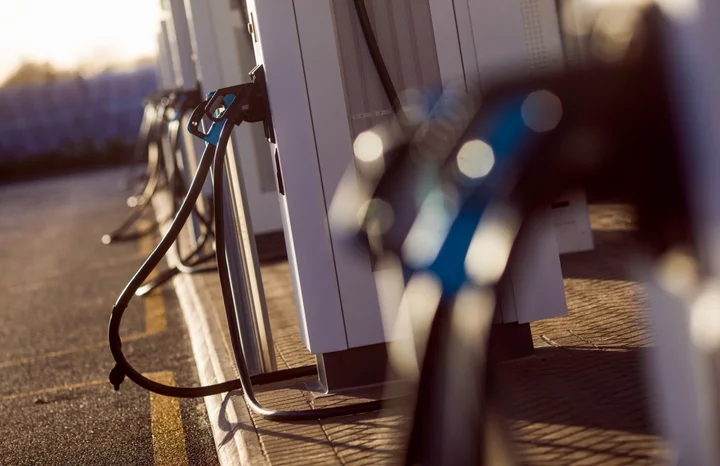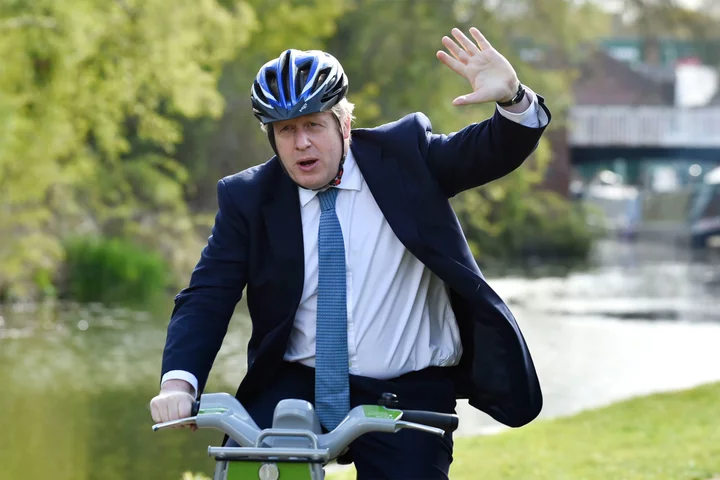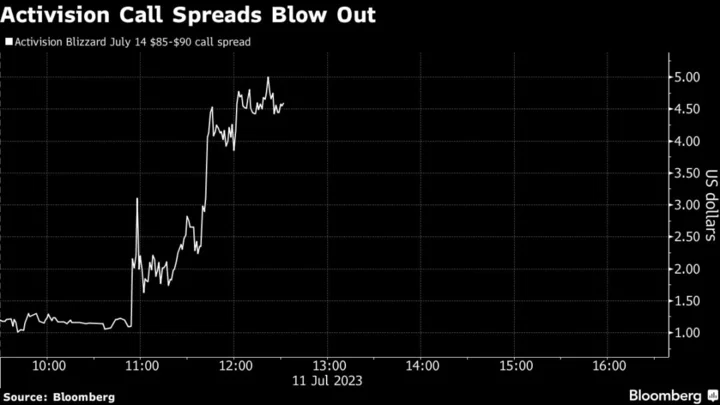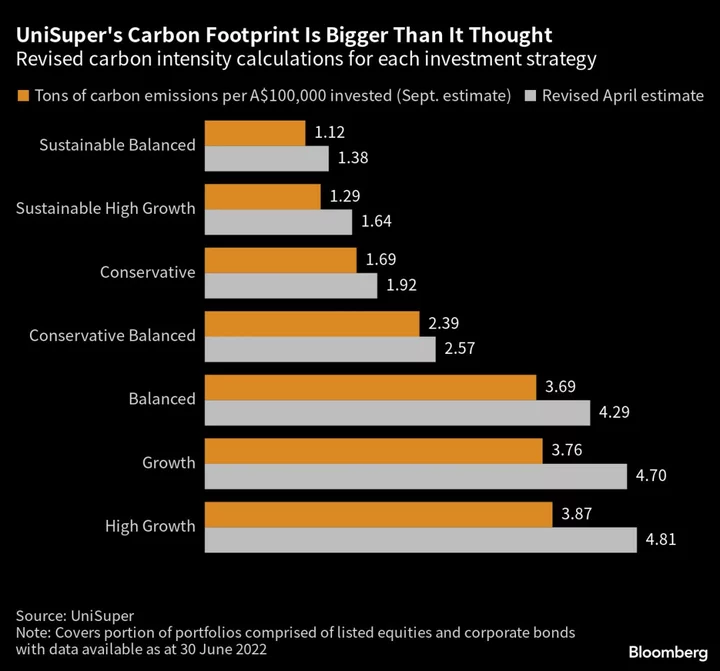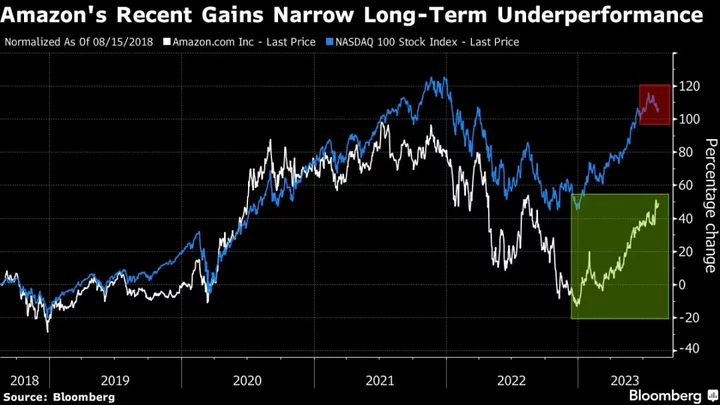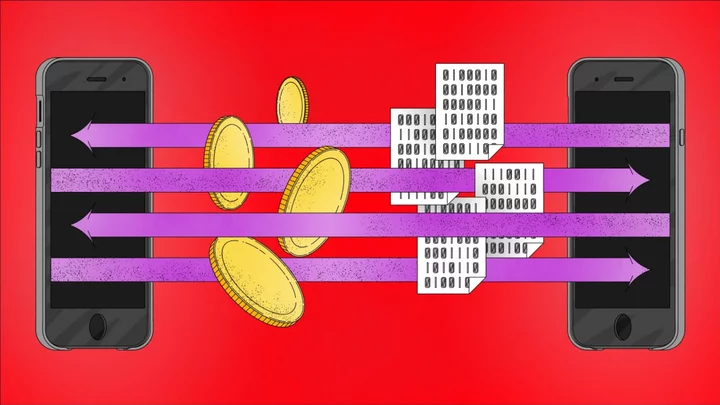British motorists are adopting electric cars much more quickly than expected, leaving a growing gap in the £32 billion ($39.7 billion) a year the Treasury collects from fuel duties.
The Resolution Foundation proposed a “road duty” charged on every mile EVs drive to make up for the shortfall, which it estimates will cost the public purse £10 billion a year by the end of the decade.
The findings underscore the challenges involved with transitioning the economy away from fossil fuels and toward technologies compatible with the “net zero” emissions goal backed by Prime Minister Rishi Sunak’s government and the Labour opposition. While EVs reduce pollution, they also will put a strain on the public services by reducing tax revenue, with most of the benefits flowing to richer households.
“Unless we modernize road taxation to reflect the cars that are on our streets today and in the future, we risk putting more even pressure on the public finances and our crowded roads,” said Jonny Marshall, senior economist at the Resolution Foundation in an email on Thursday. “Our tax system needs to keep pace with the Electric Vehicle transition in a way that protects low- and middle-income households.”
The group’s report on the issue said electric cars cost 60% less per mile to operate than ones powered by traditional engines, and that the most wealthy households are more likely to drive an EV. That means lower income households aren’t receiving the benefit — and are paying more to the Treasury in fuel duties.
Resolution said those advantages aren’t needed by the richest fifth of households who make up two-thirds of new car spending.
The reports follows public finance figures showing the Treasury’s deficit grew at the second-highest pace for the month of April since 1993. Rising debt interest payments and cost-of-living support measures drove spending higher.
Resolution also said the Treasury should cut the 20% value added tax that EV owners pay to use public charging points. More affluent households who have access to off-street parking benefit from 5% VAT on home charging — an anomaly the researcher calls a “pavement tax.”

